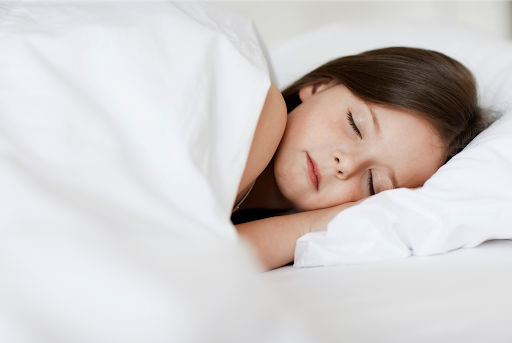

4 Natural Remedies to Prevent your Child From Bedwetting
Approximately 15-20% of children between the ages of 5 and 7 wet their beds at least occasionally. Bedwetting in children can be caused by a variety of reasons. Some children are very deep sleepers and are not aware of the need to use the bathroom during the night. Sometimes their bladders are too small or have not matured enough to hold urine all night.
Children are also more likely to wet the bed if one or both parents has a history of bedwetting. Occasional accidents are common for small children. Bed wetting does not mean that toilet training has failed.
Medical treatments are available but there are ways that parents can help children to stay dry through the night. Here are 4 natural ways and home remedies to help your child stop bedwetting.
1. During the Day
The first tip to help prevent bedwetting, children should drink plenty of fluids during the day and limit their fluid intake in the evening closer to bedtime.
Using the bathroom every few hours during the day helps the bladder become used to filling and emptying regularly. This will also help children become more aware of the sensation of a full bladder and reduce last-minute rushes to the toilet.
Children may benefit from using the bathroom twice before bed to ensure that the bladder is completely empty when they go to sleep. Drinks such as; Caffeinated beverages, citrus juices, red dyes, and artificial sweeteners should be avoided as they can irritate the bladder which could lead to a nighttime accident.
2. During the Night
Some children are very deep sleepers because they do not get enough sleep. An earlier bedtime may help the child achieve a lighter sleep pattern. Physical activity during the day and minimizing screen time in the evening will also help promote good sleep.
Children should be encouraged to go to the bathroom when they feel the urge to urinate during the night. Night lights can help the child easily make their way in the dark. Some children will stay dry if they are woken once during the night to use the bathroom reducing the number of times your child wets the bed.
3. Bedwetting Alarms
Bedwetting alarms have small sensors that attach to the pajamas or bed linens. An audible alarm sounds to alert the child that urination is in progress so that they can use the toilet to finish emptying the bladder.
Parents must listen for the alarm as well as children may sleep through it. In time, sleep patterns will coordinate with signals from the bladder so that the child will wake as needed during the night to urinate.
4. Rule out other causes
Some bedwetting in children may be caused by an underlying medical problem that contributes to bedwetting. Children with large tonsils may have sleep apnea. Their breathing is disrupted during the night which increases urine output and stimulates the bladder to empty.
Constipation can cause bedwetting when the enlarged bowel presses on the bladder. Urinary tract infections irritate the bladder and diabetes causes increased urine output. Some children have a shortage of the vasopressin hormone, this causes their kidneys to produce too much urine.
Important symptoms to report:
- Pain or burning with urination
- Unusual thirst and excessive urination
- Significant weight gain or loss
- Dark, cloudy, discolored or foul-smelling urine
- Loud snoring with daytime sleepiness
- Numbness, tingling and pain in the legs
Final Thoughts
Parents can use incentive programs to help children achieve increasing periods of nighttime dryness. Children can be motivated by tracking their progress and earning rewards for staying dry overnight. Patience and encouragement will help instill confidence and help children remain optimistic about overcoming bedwetting.
At SaniSnooze, we offer the best waterproof mattress options for every age group and bedwetting issue. The SaniSnooze Bedtime Kids mattress is specifically designed for young kids and toddlers. A quick and easy clean-up will be a big relief getting them back to bed fast!
Our SaniSnooze customer support team is here to help guide you through your incontinence solutions. Please call (844) 510-0100 or e-mail info@sanisnooze.com if you have any questions or concerns.
Related:
Choosing an Incontinence Mattress
Our mission at SaniSnooze™ is to get you back to sleep faster. SaniSnooze™ will keep your mattress core clean and dry all night long.



